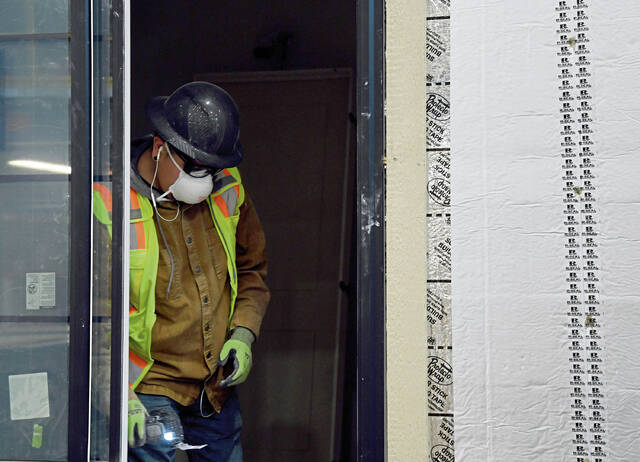Joe Biden did something no other president has. He extolled the virtue of unions and told workers that corporations do not have the right to prevent them from joining a union, and he did it on video.
After four decades of U.S. labor productivity rises that have gone unrewarded with raises, almost two-thirds of workers want to join a union, according to Gallup polling. But will Congress reform the laws governing union elections and bargaining to give workers a fighting chance? The president and the House have said yes. The last battleground is the U.S. Senate.
Earlier this month, the U.S. House of Representatives passed a bill called the Pro Act, which protects employees who support unionization from company intimidation, harassment and firing. Current labor laws allow corporations to hold captive employee meetings, to unreasonably restrict activities of union organizers, and to stall union votes and contracts. Worker intimidation, carefully and cleverly carried out, goes virtually unpunished and undeterred. The Pro Act addresses all of this.
But the Pro Act isn’t law, yet. A vote to form a union is taking place now at a huge Amazon warehouse in Bessemer, Ala. There, Amazon did everything I described above and is also accused of harassing pro-union employees. (Recall that in May 2020, Amazon fired workers in New York City who spoke out against the lack of protections from covid-19.) If Amazon employees in Alabama persevere in the face of the harassment and barrage of anti-union propaganda to vote “yes,” it will be the first Amazon location in the U.S. to have a union.
This brings us to a revealing fact about Amazon, as well as McDonalds and Walmart. When they operate in Europe, Japan or South Korea, they have learned to live with unions. Their workers have paid vacations, sick leave and wages that allow them to survive without resorting to food stamps. In Germany, labor law requires that unions sit on corporate boards. Only in the U.S. do these megacorporations insist that workers should get no voice, no right to bargain wages and no workplace rights. Only here can they pay employees so poorly that full-time workers must rely on government support. And only in the U.S. do companies in the developed world enjoy tax breaks and business deductions while they exploit their workforces.
In the final battleground, the U.S. Senate, Democrats and Republicans appear to be evenly divided on the Pro Act. Vice President Kamala Harris can break a tie vote, but on non-budgetary legislation, the Republican minority can use the filibuster (endless debate) to keep a vote from happening.
Confused? Welcome to Senate rules. A filibuster can be stopped, but it would require every Democratic senator and 10 Republicans — a 60-vote majority — to join in a vote to end debate just in order to hold a vote on the Pro Act.
There is another way. The filibuster is not required by the U.S. Constitution; it’s simply a Senate rule. Senate Democrats have the power to void or modify Senate rules. They could end the filibuster so Minority Leader Mitch McConnell can no longer block votes on important bills like the Pro Act. The use of the filibuster was modified in 2013 by Senate Democrats so that a simple majority would be required to confirm appointments to the executive branch and to all federal judicial posts, except the Supreme Court. It was modified again in 2017 by Senate Republicans to allow a simple majority vote to confirm Supreme Court nominations, too.
Without further restrictions or its elimination, a filibuster by the minority party can stop the Senate from voting on a bill to boost the rights of workers across America.
There’s one more complication. If senators don’t want to face the business lobby’s wrath in their home states and risk their own reelection, they may express support for the Pro Act but then come out against changes to the filibuster. Only overwhelming voter support for the Pro Act and against the filibuster will move all Senate Democrats to eliminate this obstructionist tactic so then they can advance worker rights.
The vast majority of working Americans want to join a union. The Senate is facing business pressure to maintain the status quo, which means flat wages, and workers on food stamps and Medicaid — all while megacorporations enjoy record profits and their owners amass robber-baron wealth.
American workers can’t count on management to pay living wages even when labor productivity rises. We need corporations and those who carry their water in the Senate to get out of the way. Let Americans speak, vote and negotiate in their workplaces without fear, harassment or firing.
Tom O’Brien, of Mt. Lebanon, has worked for consumer, environmental and labor organizations in the U.S. and Canada for 25 years.
Tom O’Brien








